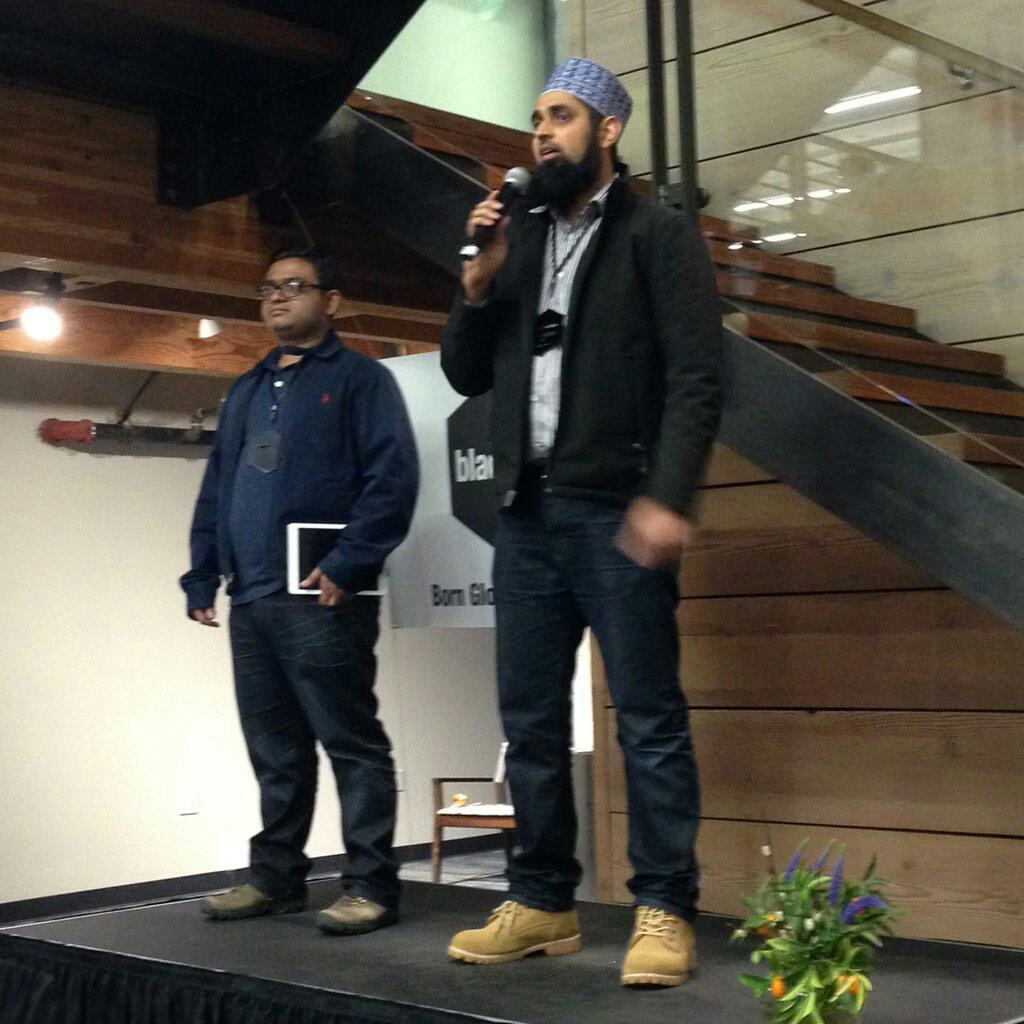

You might already know a lot of college or high school dropouts who founded companies that ranked in billions? Believe me, not every day you will hear a story like APIMatic.io, which started off by discovering a pain point during a market validation exercise of a PhD research project, and the founders–Syed Adeel Ali and Zeeshan Ejaz Bhatti are turning it into a commercial success in the API ecosystem. We recently got a chance to e-meet Adeel Ali, the brains behind APIMatic, who shared his swift journey that converted his research into a product that is now the talk of Silicon Valley. You can find his impressive story in the Q/A session below.
How did you initiate this venture?
I completed my graduation in the year 2006 from NED University of Engineering & Technology, and started working for a multinational company. I had applied for HEC’s scholarship for Master’s which I was granted in 2008 and then I went on to pursue my Master’s and PhD from University of Auckland, New Zealand. The core area of my research was Web Services, their composition and formal structures.
In 2013, I got a research paper accepted in a top conference of web services that motivated me to take an application of that research to the Spark Ideas Challenge, which is an annual entrepreneurship competition at our university. Eventually, I won a prize offered by Uniservices – the commercialization wing at my university, which led to an extensive market validation exercise in New Zealand, Singapore and USA. Interestingly, we found that the market is not too excited about our big idea, but is very much interested in the initial 10% of it, which actually solves an existing pain point for API providers. Therefore we ended up focusing on that 10% to address the pain point, and are still digging deeper and deeper.
What need did you identify in the current market of APIs?
Interesting question! Remember the good old days when you used to have a CRT monitor running a browser that used to be your only point of interaction with the Internet? Now just look around you, can you count the number of smart devices you and your friends use to check your emails or accessing Facebook? I usually access Gmail on 4 devices – on a Windows laptop, on an Android phone, on an Apple iPad, and on a Smart-Watch. That is because Gmail has created an ”app” for all of the devices I use, and it’s a no brainer that how crucial it has become for the success of businesses to be available to their users on every gadget they use. That’s where APIs are extremely useful, as they can effectively provide digital content to all the emerging platforms and devices.
However, providing an API is only the half of story as APIs can only provide you data, and to convert that data into meaningful information you need developers who create beautiful apps you and I use. That’s why API providers also provide developer kits in multiple programming languages to help developers using their APIs. Building those kits is not too difficult, but maintaining them -especially after every API update- is quite painful, and API providers end up hiring a bunch of developers to build and maintain their kits. We solved this pain point by automatically generating those developer kits in 8 programming languages till date. How cool is that? Well you’re actually saving the cost a bunch of developers, which we estimate to be up to 95% of the cost associated with the manual development of the kits.
How was your BlackBox Connect experience and how did it help you grow?
AWESOME! *exclaimed Adeel* BlackBox Connect gave us an opportunity to learn many secrets of Silicon Valley. There are a lot of things we try to learn are actually considered common sense in the Valley. It was amazing to stay in the heart of the valley with the brightest of minds from all over the world, and talking to amazing people including VCs, lawyers, founders of successful companies and cool mentors. We literally realized dozens of mistakes we had been committing being a novice in the industry. We learned the art of pitching, presenting, meeting and talking! Yes talking to our customers, our partners and investors by the pitch doctor – Bill Joos. What an amazing character he is. I still remember and recall Bill’s “Ahaa” moments during business meetings and presentations. I also want to mention the H to H philosophy of Fadi Bishara – the founder of BlackBox. We normally classify business relationships as B to B or B to C, but Fadi emphasized that the most important type is H to H, i.e., Human to Human relationship. I strongly believe that this philosophy works not only in business, but also in every aspect of life. Last but not least I would like to thanks the Blackbox team to arrange such a wonderful program, Google for Entrepreneurs for the sponsorship, and P@sha for choosing APIMatic among all other competitive startups.
What were the hurdles that Apimatic faced from its incubation journey to entering the real world?
Adeel paused for a second. You see, we did not have to face many difficulties related to the technical side of our startup however, it took us a while to understand how to make business around a product and how to market your product for the generation of sales.
See also: From Center of Entrepreneurial Development to Real World: Journey of Stallion Deliveries
Is your customer base international or just restricted to New Zealand?
You know where there is a will there is a way, so exactly where there’s an API there is APIMatic *laughs*! We literally have potential in many areas, but currently we’re focused on API providers, and most of them are located in USA. We do have some success stories in New Zealand as well. You would be interested to know that our upcoming product www.sdks.io is focused on app developers, and the biggest markets of that include Pakistan, India and Bangladesh etc. Software houses can increase their productivity by the automation we provide.
Since you hail from Pakistan do you have any plans expanding your venture here and giving opportunity to Pakistani developers?
Yes sure, why not? Even last year I visited Karachi and stayed around for a month. I also visited dotZero, Nest I/O and attended the eCon by OPEN Karachi. The reason was the expansion of my venture in my homeland, setting up an office for development and support. I have also hired a couple of developers who are working from Pakistan for APIMatic. I would like to thanks Mr. Asim Siddiqui from Axact and Mr. Ali Nasim from Ephlux to provide valuable suggestions.
Do you think Karachi can be the Silicon Valley of Pakistan?
Honestly speaking, I was quite scared of the brain-drain problem of Pakistan, but after attending the eCon in Karachi, especially listening to the technopreneurship panel, I am content that the situation is not that bad, and we still have great guides to help our young minds. The right ingredient is intelligent people and we have intelligent youth in abundance, we only need to focus on their productivity. I met a few people at Stanford, and we discussed the need of a Blackbox Connect kind of experience or a competition where the winning startup would be transported to Silicon Valley. I am really glad by the way Nest I/O is operating in Karachi. The dilemma is that the world is quite aware about tech developments but countries like Pakistan will have to be fast enough to gain momentum and catch up with the constantly evolving tech developments. We need to understand that for an entrepreneurial venture execution is more important than a great idea itself, and great ideas I believe are ones that are fulfilling some real needs. I was looking at the list of companies that Nest I/O has incubated for its inaugural batch and there was one app (TeamFYP) that will act as a portal for all FYPs that are being developed in various universities. I believe it is a great idea and have a great potential. We should just know that there is no need to reinvent the wheel.
Some words of advice for the TechJuice readership?
All of us are getting degrees, be it a PhD or an undergrad one for the sole purpose of achieving good marks or landing a high job. We need to understand that a thesis or research work will be another book on shelf unless it is pursued practically and implemented with learning. Therefore, my only advice is to be practical and apply whatever you are learning to make wonders.
See also: Can Karachi be the Silicon Valley of Pakistan?
Adobe has launched “Firefly Bulk Create,” a new generative AI tool designed to revolutionize labor-intensive…
As Samsung’s Galaxy S25 series gets closer to launch, new leaks reveal the pricing for…
Nominet, the leading U.K. domain registry responsible for managing .co.uk domains, has confirmed a cybersecurity…
eBay has announced its acquisition of Caramel, a startup that streamlines the final stages of…
Meta-owned popular messaging app, WhatsApp is expanding its AI capabilities with the introduction of a…
The Federal Board of Revenue (FBR) has faced public backlash for deciding to buy 1,010…